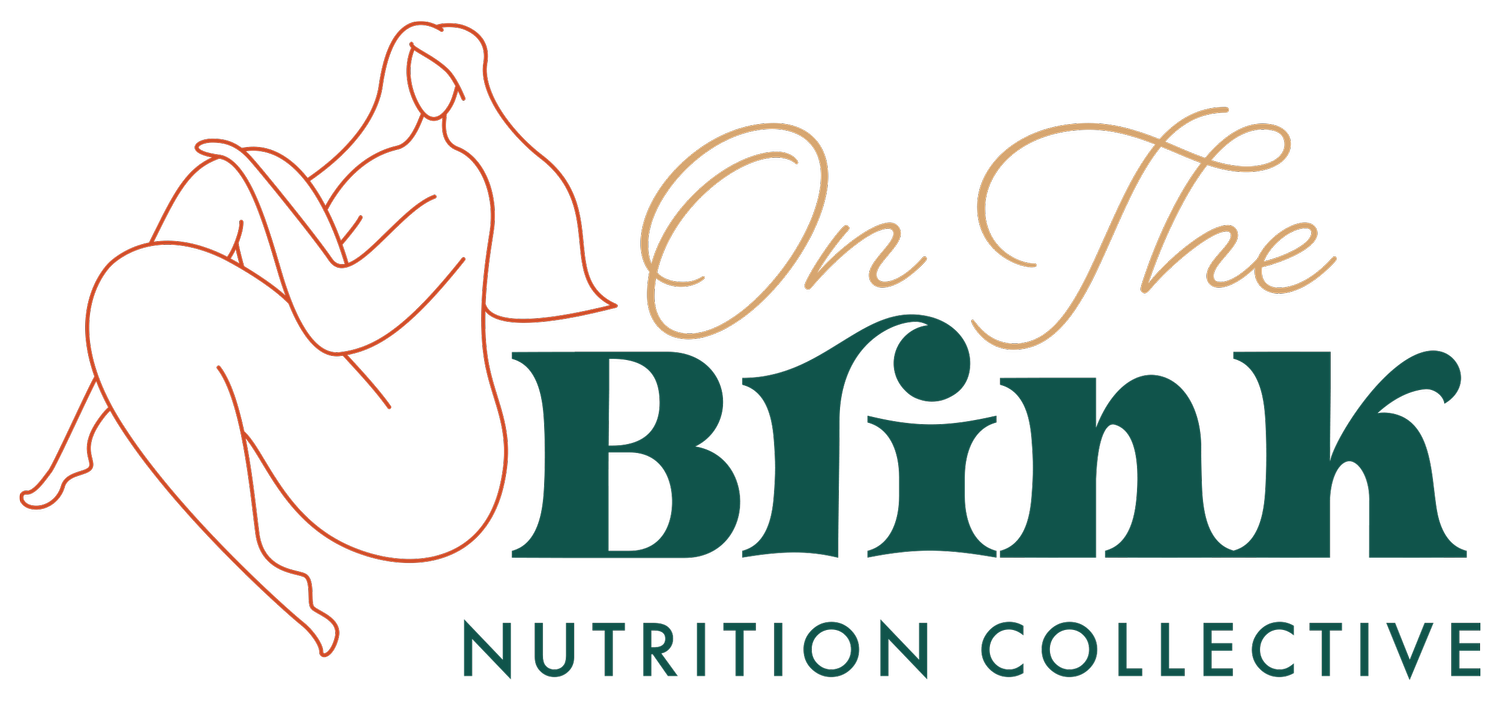Threat: The Thief Of Motivation
Humans are motivated to change their behaviors in an effort to bring healing and wholeness into their lives. This might look like the behavior of eating on a regular basis, adding more sources of omega 3 fatty acid, being strategic with protein and carbohydrate. However, if something in life threatens our safety, the behavior of responding to threat will always win.
In other words, the drive to achieve immediate safety always covers up the motivation to change a behavior.
The following vignette is an example of this that I see in my practice on a regular basis.
A common reason people begin work with me is that they are tired of dieting. They’ve tried all the diets-of-the-day and they want to find a new, more peaceful way of being with food. They are driven to re-learn (or learn for the first time) a new eating behavior that is aligned with their preferences, is balanced and sustainable, and supports their well-being.
So, we get down to the business of learning to eat in a more connected, embodied, and attuned style.
This may include practices to:
identify and reclaim cultural foods and eating styles
notice and trust hunger and fullness cues
identify rules that limit have once limited food choice and learn to incorporate a larger variety of foods
managing emotions with a variety of coping skills
identify barriers to desired change and find ways to remove these barriers
and on, and on, and on.
To quantify “progress”, we track blood sugar, blood pressure, perceived energy level, sleep cycle, moments of meaningful movement, and the results of the self-compassion scale, intuitive eating scale, and body acceptance scale; notice these metrics having nothing to do with weight lost/gained, daily calories consumed and burned, macro amounts, clothing size changes, or inches lost.
Many people that work with me love this approach. It really “works” for them. For the first time, they feel more free and connected. And then, suddenly, seemingly out of nowhere, I’ll get a call with a request to postpone or cancel the next session.
I often hear, “I’m not sure why, but I’m no longer motivated to do this work of moving away from dieting. I’m going to go back to XYZ Diet for awhile.”
When I hear this, I get curious and compassionate.
If there is time and interest on the part of the client, I ask, “since starting this work of moving away from dieting, how have your body and relationships with friends, family, and co-workers changed?”
I often get responses like: My body is getting bigger. I don’t have anything to talk to my friends about now that I’m not making the pursuit of weight loss the center of my life. My partner is judging my food choices.
The truth is, doing the behaviors of dieting (even if you never lose weight) will increase your chances of getting safety, belonging, and respect from the culture around us because you are following the rules of what it means to be a good woman.
That’s powerful.
Within a culture that tells us that Thinness = Worthiness, the action of dieting (or returning to dieting) is not even a conscious choice. It’s a subconscious response to threat.
On a subconscious level, the brain is constantly scanning the environment for threat. Enacting a behavior (moving away from dieting) that is not accepted in a group causes the brain to metaphorically smell smoke (side-eye from co-workers, comments from partners, exclusion from conversations). The brain reacts by sending out the alarm “FIRE!” (Stop, drop, and correct the behavior NOW…return to the “correct/acceptable” behavior). If I (as the healthcare provider) respond with, “Oh, there’s a fire? Let’s try a mindful eating practice and choose that piece of cake because you have permission to eat all the food1” the client will feel unseen/unsupported/more threatened and enact the safe behavior (returning to dieting) that will bring them true safety.
What I have learned in my twenty years of this work is that when a person is faced with the choice between safety and threat, it is my job to do everything I can to structure safety before ever talking about how to “stay on track” (ie, maintain motivation) with a new and desired behavior.
This looks like me using an approach I learned from Emotion-Focused Family Therapy training.
Step 1: naming the threat with words of validation: “I understand you feel afraid to continue the work of moving away from dieting because this new way of eating draws unwanted attention and criticism; because you feel alone; because your body is changing.
Step 2: provide emotional support with words like “I hear you. I’m here to help.”
Step 3: co-create practical support suggestions such as, “Let’s sit together and grieve. Let’s come up with ways to save the younger generation from having to go through this. Let’s create a group for support.”
Once the big emotion has been cared for, the internal sense of threat (the fire) gets cooled off, leaving room for more flexibility and possibility for rational thinking and problem solving.
Moving away from dieting is not just about building the confidence and trust to eat all the food. It’s about understanding the human impulse to stay safe, belong, and be respected.
It’s true. It’s complicated. It’s my passion.
Reach out if you are ready to make the shift. We’re here.
